Penny Seats Theatre Company's "The Actors" is a comedic and emotional look at processing parental loss
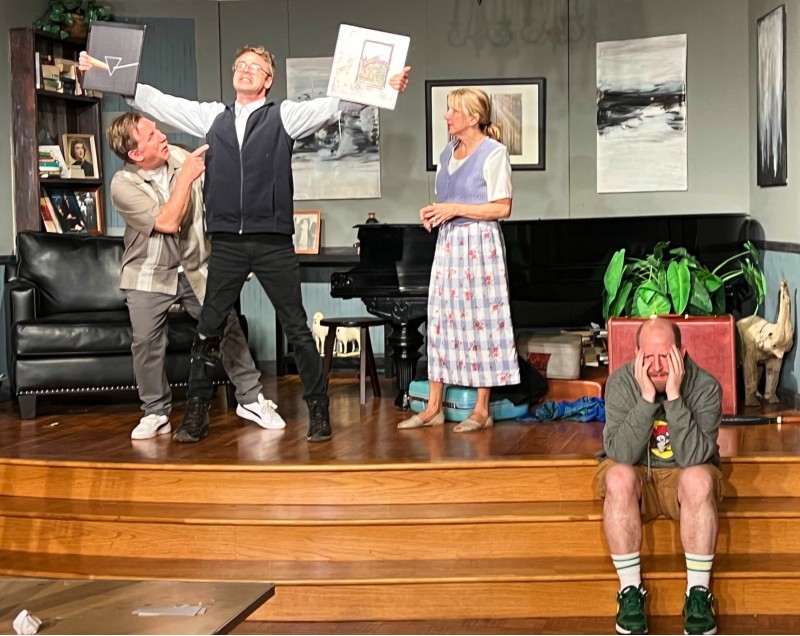
Early in Ronnie Larsen’s play The Actors—staged by the Penny Seats Theatre Company at the Stone Chalet Event Center in Ann Arbor—a character says, “Theater’s weird. Families are weird.”
Ronnie, the comedic drama’s main character (who notably shares the playwright’s name, and is affectingly played by Brandy Joe Plambeck), voices this idea while explaining why he’s looking to hire a man and a woman to spend a few hours a week in his apartment, playing the roles of his deceased parents. He's lonely and has decided to use his inheritance money to hire actors that might make him feel cared for and connected again. Ronnie provides a family history and specific, remembered scenes for the actors to play out, inviting them to improvise.
Inevitably, though, things go hilariously off-the-rails, as the boundaries between reality and pretend get increasingly fuzzy. Ronnie’s stand-in father Clarence (Robert Schorr) and mother Jean (Diane Hill) develop an attraction for each other; Clarence moves in, after being kicked out of his real home; and Jean’s real grown son (David Collins) inserts himself as Ronnie’s pretend older brother Jay, which makes the real Jay’s (Jeffrey Miller) unannounced visit all the more painfully awkward. But Jay’s arrival also brings new information to light that throws Ronnie’s family memories, and motives, into question.
Patti F. Smith taps into the stories of brewpubs, brewers, and their beers in her new book, "Michigan Beer: A Heady History"
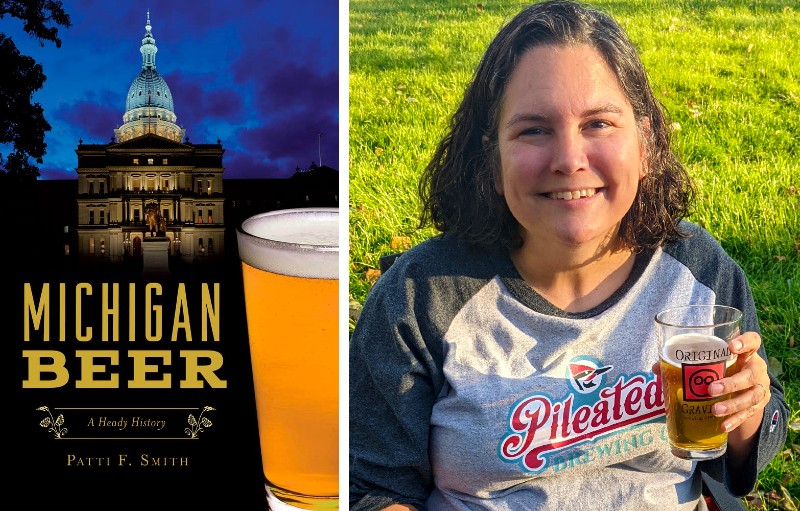
Patti F. Smith's introduction in her new book, Michigan Beer: A Heady History, may activate your thirst to take a seat at one of the state's many current establishments:
Like the waves that crash in the magnificent Great Lakes that surround Michigan, beer and brewing has constantly moved and evolved in the state. […] Come along on a trip through the history of Michigan’s brewers and beer as we explore, region by region, the history of brewing in our great state.
But Michigan Beer reports on mainly pre-World War II businesses and their beverages. Smith highlights the “first wave of brewers” who came to the U.S. from countries like Germany and Prussia. She also describes the “second wave” who endured or sprung up after Prohibition and also struggled during WWII. The “new wave” gets a dedicated chapter at the end of the book regarding breweries in the 1980s and onward.
Michigan Beer is organized by regions of the state: the Upper Peninsula, Western Michigan, Mid-Michigan, Eastern Michigan, and Southeast Lower Michigan, plus the “new wave” not divvied up by location. Each chapter spotlights numerous corners of the state from Copper County and Escanaba to Grand Rapids and Detroit, with many more cities showcased. Readers can look up their hometown, college town, or favorite vacation spot and see what breweries were once pouring there.
Friday Five: Doogatron, Thomas Gun, Claire Cirocco & Fred Thomas, Larynx Zillion's Novelty Shop, angels

Friday Five highlights music by Washtenaw County-associated artists and labels.
This week features industrial krautrock techno by Doogatron, punky psychobilly by Thomas Gun, clangy drift music by Claire Cirocco & Fred Thomas, experimental glam by Larynx Zillion's Novelty Shop, and electro-pop by cherry seasoning.
Recovery Strategy: Chelsea singer-songwriter Scotty Karate finds catharsis on "Always Honey"
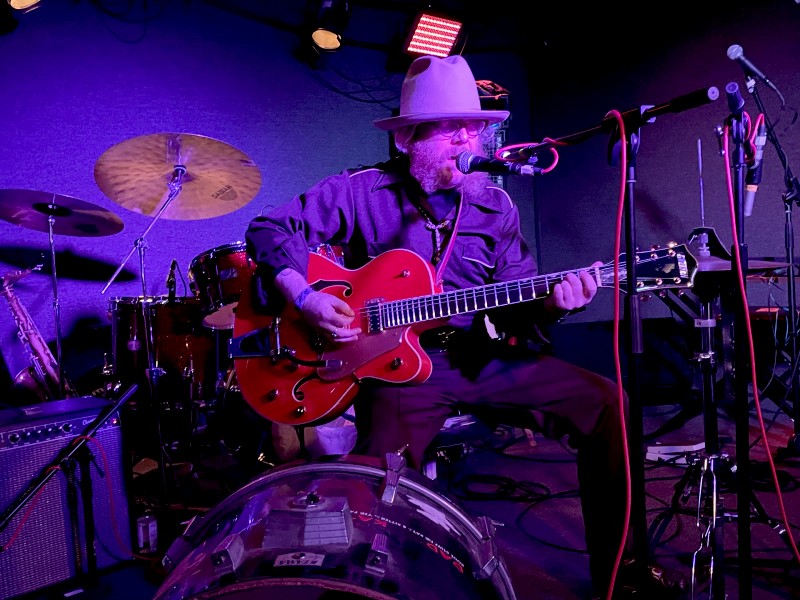
Scotty Karate’s therapeutic album Always Honey chronicles a path to personal growth and recovery.
The Chelsea alt-country singer-songwriter and multi-instrumentalist shares his vulnerable experiences with addiction, loss, and heartbreak on his latest insightful album via Ann Arbor's Ravine Records.
“It’s been some pretty heavy-duty times, and with my whole recovery the last four years," said Karate, aka Fredric Scott Leeman, who works at Washtenaw County’s Community Mental Health. "I’ve reflected a lot on past relationships and things like that."
Karate started reflecting on those relationships and experiences in January 2018 when he received treatment at a local rehabilitation center and resided in transitional housing for 15 months. At the time, he saw several friends get kicked out, then relapse, and later pass away.
“With my own experiences and how they worked out, I had to see this [trauma] … you couldn’t not see this living with these people. It was kinda the point,” Karate said. “Even if it wasn’t that, I felt like I was on this boat, and if you got on this side or that side of the boat, everybody fell off … so you had to stay in the middle of the boat. It’s so tricky, it’s not just kids having fun anymore, none of it is.”
Angeline Boulley’s YA Novel, "Firekeeper’s Daughter," Follows a Native Teen Who Discovers Intrigue and Betrayal in Her Upper Peninsula Community
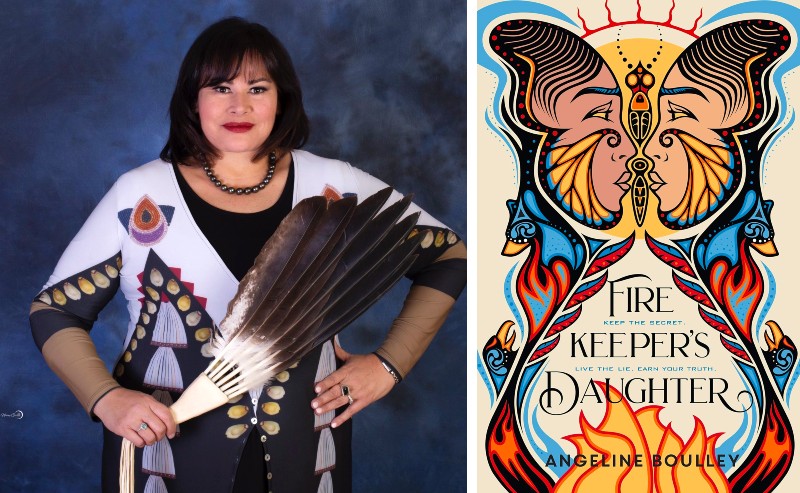
When author Angeline Boulley wrote her new young adult novel, Firekeeper’s Daughter, she had a goal for the thriller. She writes about her main character, Daunis Fontaine, in her Author’s Note:
Growing up, none of the books I’d read featured a Native protagonist. With Daunis, I wanted to give Native teens a hero who looks like them, whose greatest strength is her Ojibwe culture and community.
Daunis fills that role with resilience as a narrator, woman, community member, and confidential informant.
Ann Arbor District Library will host Boulley for an author event on Wednesday, April 6, at 7 p.m. at the Downtown Library.
In Boulley’s novel, Daunis experiences multiple tragedies in her Ojibwe community in a short amount of time. She then discovers that there is a related, ongoing federal investigation about a drug ring. Firekeeper’s Daughter tracks the steps that Daunis takes to unearth what is going on in her hometown of Sault Ste. Marie in the eastern Upper Peninsula of Michigan. At the same time, Daunis is entering her first year of college and grieving the deaths of loved ones.
As Daunis becomes embedded in the investigation, she must learn how to be a confidential informant and also reckon with the pressures and dangers of her role. FBI agent Ron Johnson tells her:
“If you as an agent of the law, obtain evidence illegally, then the information is inadmissible in court under the Fourth Amendment. It’s called fruit of the poisonous tree. It’s better for you to volunteer information and let us ask for clarification.”
Early on in the novel, she begins walking a tightrope of her role as a CI and relationships with her family and friends. The situation blurs as Daunis pretends to be dating one of the agents, Jamie Johnson, who has also joined the local hockey team to advance his undercover ruse.
Ojibwe teachings guide her actions, and Auntie, without knowing what Daunis is involved with, also advises her that:
“You need to be careful, Daunis, when you’re asking about the old ways.” She looks at me the way Seeney Nimkee does sometimes at the Elder Center. “There’s a saying about bad medicine: ‘Know and understand your brother but do not seek him.’”
Daunis continues exposing secrets and also learns about the further tragedy that, “Not everyone gets justice. Least of all Nish Kwewag.” As Boulley also highlights in her Author’s Note, Native women experience high rates of violence.
Prior to her talk at AADL, I interviewed Boulley about her novel and plans.
Friday Five: The many guises of Laurence Bond Miller and Ben Miller
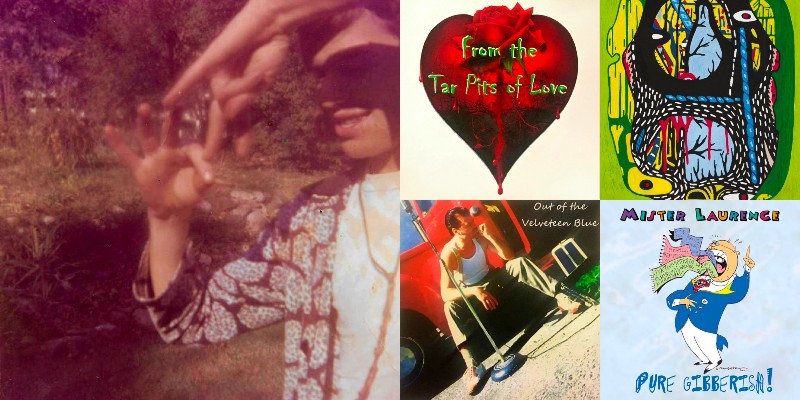
Friday Five highlights music by Washtenaw County-associated artists and labels.
This week features the Miller brothers with a heavy focus on Laurence, who has been making music in the Ann Arbor-Ypsilanti area for nearly 53 years, ever since he and his brothers, Roger (Mission of Burma) and Benjamin, formed Spronton Layer in 1968 while at Ann Arbor High School (Pioneer).
The brothers are such a prolific creative forces—in the past and in the present—that we also did an all-Millers Friday Five back in December 2021, which you can read here.
There's always a steady stream of new and archival releases by the Millers, and the recordings below span new wave, children's music, lounge, experimental, pop, rock—and everything in between.
Homeless kids find a voice in U-M's production of "somebody's children"
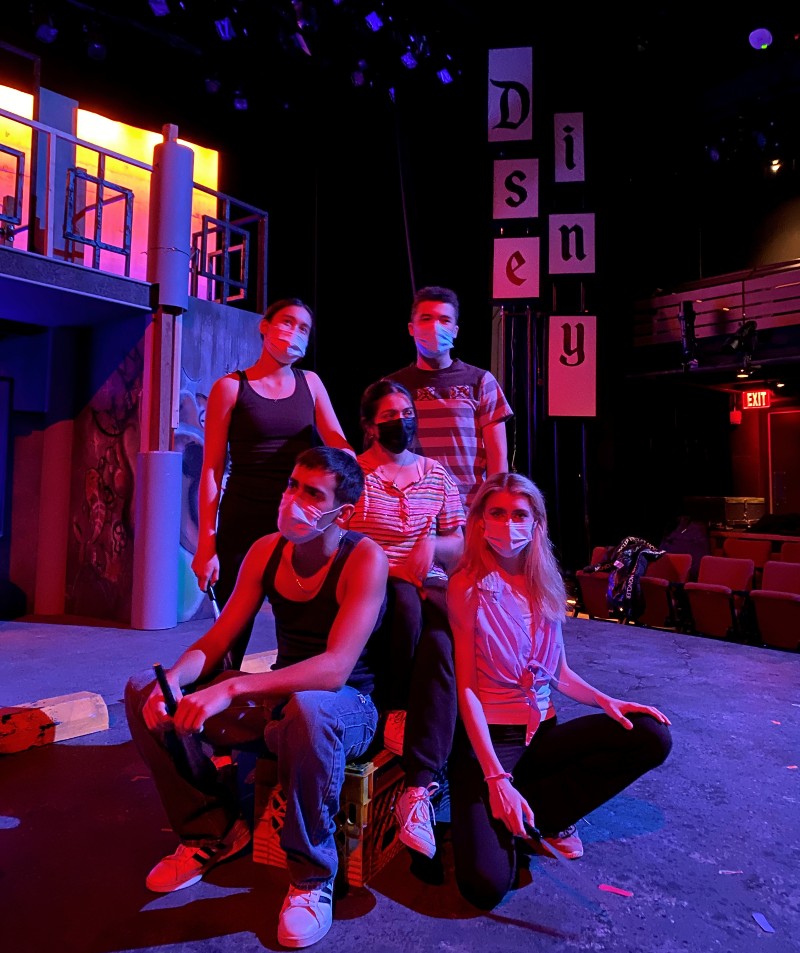
Thirteen years ago, the Found Spaces Theater Company in Los Angeles commissioned a play from José Casas about homelessness. “I was really struggling with the play,” he recalls. “It was like a bad afterschool special with two-dimensional characters.”
Then the artistic director gave Casas an article about homeless kids who lived in motels, kids with fathers who were absent or deceased, who live near Disneyland and suffer “earth-shattering tragedies each day.“ At once, he was inspired by the thought of some children enjoying a theme park, while children in abject poverty were near enough to hear their laughter.
And somebody’s children took shape quickly. The University of Michigan is staging a production at the Arthur Miller Theatre through April 2.
Friday Five: Chris Bathgate, The Rick Burgess Trio, Kelly Hoppenjans, Katie Pederson
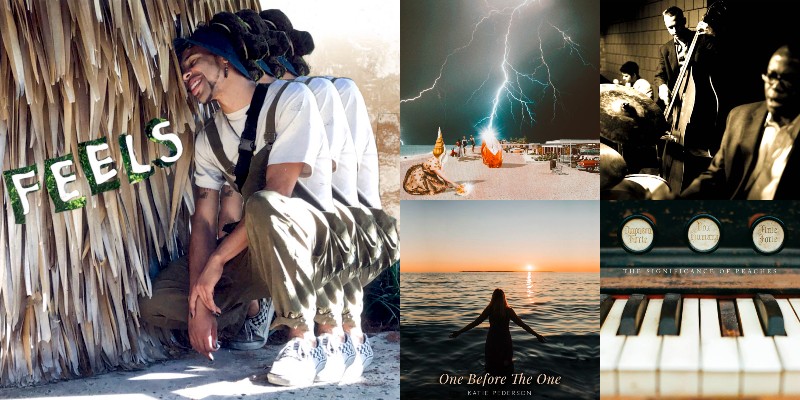
Friday Five highlights music by Washtenaw County-associated artists and labels.
This week features a new single by singer-songwriter Chris Bathgate, a memorial compilation of live jazz by The Rick Burgess Trio, crunchy and atmospheric indie rock by Kelly Hoppenjans, country-tinged pop by Katie Pederson, and innovative R&B via Where She Creep.
Ann Arbor singer-pianist Hannah Baiardi makes jazz her own on "Straight From the Soul"
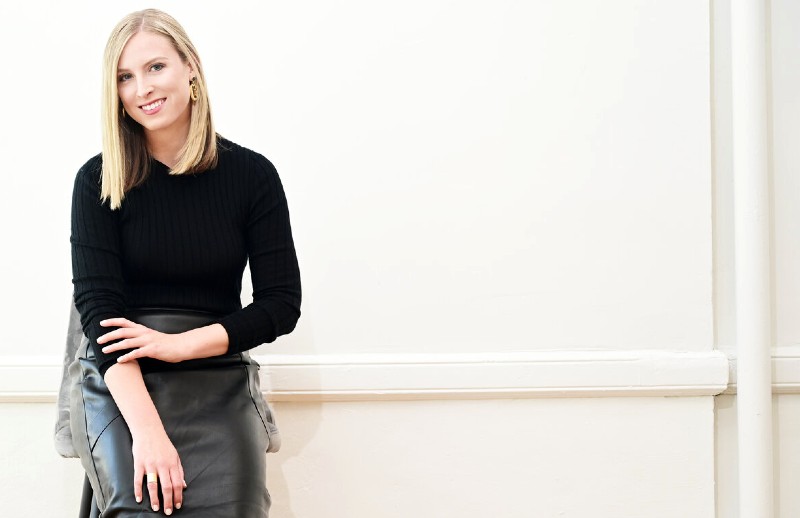
This story originally ran July 27, 2021. We're rerunning it because March 22, 2022, is the one-year anniversary of the album's release. Her latest single, "Lot Lot," is available here.
Hannah Baiardi has been writing and performing music since age 3, so it’s no surprise that her first full-length album, Straight From the Soul, is a polished and thoughtful work.
Although a listener might categorize the music as contemporary jazz, Baiardi clearly draws on other influences as diverse as R&B and new age, and it all comes through on the album. The University of Michigan grad (BFA ’18, jazz studies) offers smooth, heartfelt vocals and evocative piano playing, which combine for a distinctive and memorable sound. She’s backed by an excellent supporting cast, including Karen Tomalis on drums on most tracks and Marion Hayden or Ryan King on bass.
Baiardi writes much of her own material. The album features five original compositions, ranging from the wistful yet hopeful “Who Can Relate” and “Distant Land” to the joyful “Let Go” and “Feel It.” The album concludes with “Transit,” an outstanding instrumental showcase.
The album also features two pop favorites from old movies—an introspective take on “Windmills of Your Mind” from The Thomas Crown Affair and “The Summer Knows” from Summer of ’42, which makes for ideal listening in the summer of ’21.
Baiardi recently agreed to answer a few questions via email.
Jennifer Huang reconceptualizes home in their new poetry collection, "Return Flight"
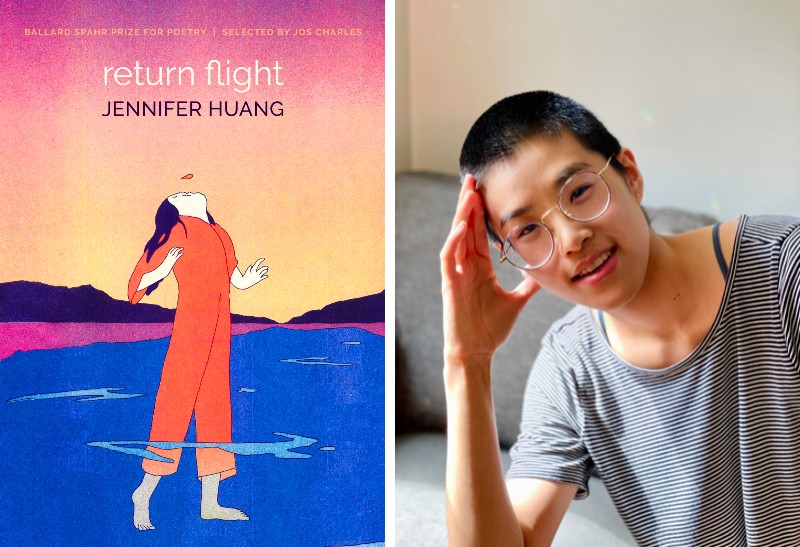
Poems in Jennifer Huang’s Return Flight map the ways that a person can depart and return to themself, though sometimes that self is no longer the same. Huang holds an MFA in poetry from the University of Michigan Helen Zell Writers’ Program, and their collection won the Ballard Spahr Prize for Poetry in 2021 judged by Jos Charles.
Some of Huang’s lines suggest disillusionment, given that “This is not what I imagined.” Other lines show a separation from oneself and the effect of external influence when, “The distance between me and I grew / So you could love me as you’ve / always imagined.”
Return Flight plays with desire and how to get what is wanted and what is the cost.
Another poem, “Departure,” describes a meal at which “We would / choke down our food to get seconds though there was always plenty,” and when faced with delicacies, the father would "tell me, Chew slowly and feel what you are eating.” That advice to process slowly and notice could be extrapolated to a number of situations in these poems.
The search for self continues even as that evolves in Return Flight. The poem “How to Love a Rock” teaches us, “How you / worry now, let it go.” As the self is reclaimed, uncertainty remains when, “Unborrowed from rocks and salt and dirt and root, where I go from / here, I don’t know.” It could be anywhere, which fits with what Huang writes in the acknowledgments: “This collection is, in part, a search for home—and the realization that home is not a destination but a journey.”
Huang was a resident of Michigan and now spends their time in Michigan, Maryland, and other places. I interviewed them about Return Flight.


































